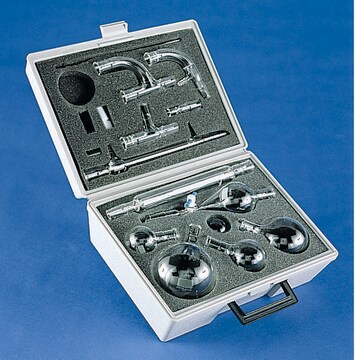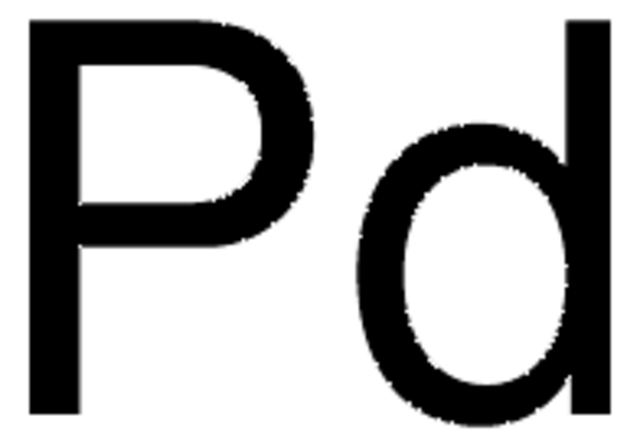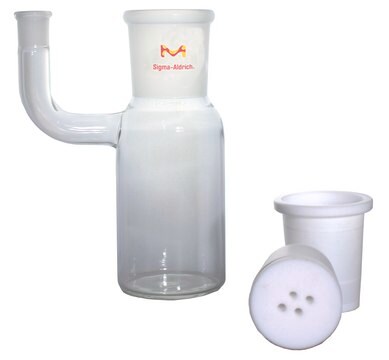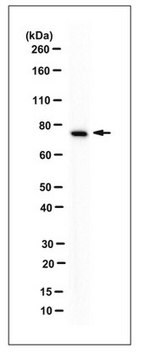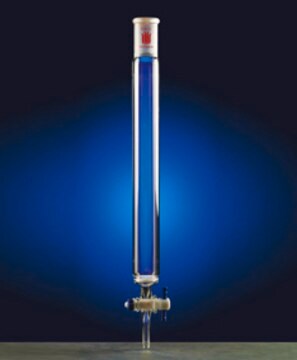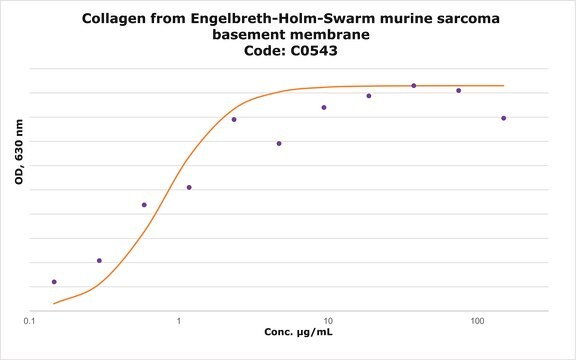추천 제품
포장
pkg of 1 ea
제조업체/상표
Cytiva 28-9564-82
재고 정보
not available in Japan
크기
20 cm × 25 cm
유사한 제품을 찾으십니까? 방문 제품 비교 안내
일반 설명
BAS Storage Phosphor Screens for use with phosphorimager systems are a faster and more sensitive alternative to autoradiography.
Broad application range: suitable for 3H, 125I, 14C, 32P, 33P, 35S and more
Storage phosphor screens capture latent images produced by ionizing radiation, including X-rays, β particles emitted from radioisotopes commonly used in research (e.g. 3H, 14C, 32P, 33P, and 35S), and γ rays (e.g. from 125I, 131I, and 99mTC). Upon laser-induced stimulation, light is emitted from the storage phosphor screen in proportion to the amount of radioactivity in the sample. The resulting digital image allows for quantitation of subtle signal intensity differences over a wide dynamic range using a storage phosphorimager system (e.g. Typhoon, Storm, or PhosphorImager) together with analysis software such as ImageQuant. Typically, 50% to 90% less exposure time is required compared with an equivalent exposure to conventional autoradiography film. Publication quality images are often obtained in a single exposure.
How storage phosphor screens work
A storage phosphor screen is a film-like sensor designed to trap and store radiation energy in a stable state. BAS Storage Phosphor Screens contain a photostimulable layer of phosphor particles (BaFBr) sandwiched between a protective layer and a support film coated with trace amounts of bivalent europium (Eu2+) as a luminescence center. Particles in the phosphor layer stably absorb ionizing radiation, which is later released as blue-violet light (400nm) upon laser stimulation in a storage phosphorimager system. Storage phosphor screens are reusable* and are not degraded by repeated exposure to laboratory levels of radioactivity. To reuse, simply expose a screen to the extra-bright light of an ImageEraser light box.
Product selection Three types of BAS Storage Phosphor Screen are available to suit differing applications:
Broad application range: suitable for 3H, 125I, 14C, 32P, 33P, 35S and more
Storage phosphor screens capture latent images produced by ionizing radiation, including X-rays, β particles emitted from radioisotopes commonly used in research (e.g. 3H, 14C, 32P, 33P, and 35S), and γ rays (e.g. from 125I, 131I, and 99mTC). Upon laser-induced stimulation, light is emitted from the storage phosphor screen in proportion to the amount of radioactivity in the sample. The resulting digital image allows for quantitation of subtle signal intensity differences over a wide dynamic range using a storage phosphorimager system (e.g. Typhoon, Storm, or PhosphorImager) together with analysis software such as ImageQuant. Typically, 50% to 90% less exposure time is required compared with an equivalent exposure to conventional autoradiography film. Publication quality images are often obtained in a single exposure.
How storage phosphor screens work
A storage phosphor screen is a film-like sensor designed to trap and store radiation energy in a stable state. BAS Storage Phosphor Screens contain a photostimulable layer of phosphor particles (BaFBr) sandwiched between a protective layer and a support film coated with trace amounts of bivalent europium (Eu2+) as a luminescence center. Particles in the phosphor layer stably absorb ionizing radiation, which is later released as blue-violet light (400nm) upon laser stimulation in a storage phosphorimager system. Storage phosphor screens are reusable* and are not degraded by repeated exposure to laboratory levels of radioactivity. To reuse, simply expose a screen to the extra-bright light of an ImageEraser light box.
Product selection Three types of BAS Storage Phosphor Screen are available to suit differing applications:
- Multipurpose Standard (MS) screens: Suitable for use with ionizing radiation from isotopes such as 14C, 125I, 131I, 32P, 35S, and 99mTc. This is the screen of choice for 32P Northerns and Southerns and 125I Western blots and gels.
- Super Resolution (SR) screens: Provide higher resolution where a pixel resolution of 50 μm is required; compatible with storage phosphor imaging systems such as Amersham™ Typhoon™, Typhoon FLA 7000, Typhoon FLA 7000 IP, and Typhoon FLA 9500.
- Tritium (TR) screens: Highly sensitive screens constructed without a protective layer, for detection of the weak energy of 3H emissions. Optimal results are obtained when the tritium signal is on the surface of the sample and available to penetrate the screen. Since these screens lack of protective layer, TR screens are for single-use.
특징 및 장점
- Rapid: Typically 50 to 90% less exposure time compared to conventional autoradiography film.
- High sensitivity: Up to 100× more sensitive than autoradiography film, depending on isotope and sample type.
- Wide dynamic range (five orders of magnitude): Visualize and quantify both weak and strong signals in a single exposure.
- Quantitative: Results are digitized using a storage phosphorimager system (e.g., Typhoon, Storm, or PhosphorImager) and accurately quantitated using ImageQuant software.
- Safe and economical: Reusable phosphor screens do not require chemicals, darkroom, or other special treatment for use.
- Convenient: Each step can be performed at the lab bench under normal lighting conditions and at room temperature.
가장 최신 버전 중 하나를 선택하세요:
자사의 과학자팀은 생명 과학, 재료 과학, 화학 합성, 크로마토그래피, 분석 및 기타 많은 영역을 포함한 모든 과학 분야에 경험이 있습니다..
고객지원팀으로 연락바랍니다.
